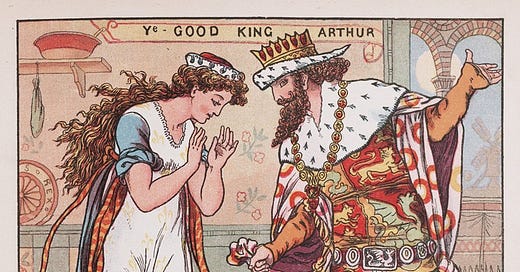Fellow Pilgrims,
I recently slogged through a new novel by Lev Grossman, The Bright Sword a Novel of King Arthur. I read the whole thing, because I love Grossman’s Magicians trilogy, which is a sort of dark, atheist Narnia/Harry Potter. That trilogy doesn’t match my worldview, but the god that Grossman doesn’t believe in, there, is also a god I don’t bel…
Keep reading with a 7-day free trial
Subscribe to Church Blogmatics by Beth Felker Jones to keep reading this post and get 7 days of free access to the full post archives.





